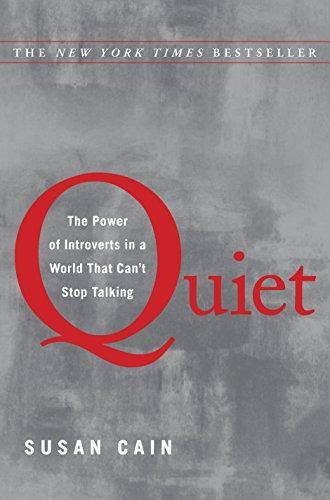Mixed Bag
3 stars
This book was equal parts frustrating and insightful. I think really it is just showing its age a bit.
There's a very americentric (really, I mean corporate American) focus in both the content and the writing style. It felt a bit of an affirmation to encourage introverts, rather than heavily science or evidence based.
It's a bit sad in a way that schools focus on preparing people to be "successful" in modern work, with its open plan offices, brainstorming sessions, and tolerant communication styles. Some kids don't flourish in group learning environments, and while I didn't mind the odd group activity I think I would have struggled if group learning was the default at school.
There's so much to psychology and personality of which your position on the introvert-extravert spectrum is just one part. Like all words-which-conceal-complexity such as autistic, adhd, depressed, anxious, etc the concepts are …
This book was equal parts frustrating and insightful. I think really it is just showing its age a bit.
There's a very americentric (really, I mean corporate American) focus in both the content and the writing style. It felt a bit of an affirmation to encourage introverts, rather than heavily science or evidence based.
It's a bit sad in a way that schools focus on preparing people to be "successful" in modern work, with its open plan offices, brainstorming sessions, and tolerant communication styles. Some kids don't flourish in group learning environments, and while I didn't mind the odd group activity I think I would have struggled if group learning was the default at school.
There's so much to psychology and personality of which your position on the introvert-extravert spectrum is just one part. Like all words-which-conceal-complexity such as autistic, adhd, depressed, anxious, etc the concepts are misused and ill-defined these days in my view.
Credit to the book it does go to significant lengths to distinguish introversion from shyness and anxiety. I was hoping the book would give more detailed insight as to why certain relationships tend to recharge rather than drain.
Worth a read maybe, as an introduction to the matter, and to help us understand each other a little bit more. For example, it does a decent job of covering why extraverts thrive so differently, and provides some anecdotes of family members that adapt to each other, and how you might cope if your child happens to be very different to you.















